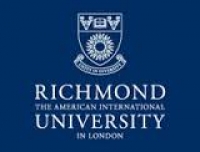






History is one of the most exciting and useful degrees that you can study at University, especially when taken in London, which is so rich historically. The subject also has a very practical application: it enables students to become proficient in skills such as researching, assessing different forms of evidence, and oral and written communication. A history degree teaches critical thinking, enhances writing and Information Technology skills as well as the ability to develop a clearly set-out argument. These broad ranging abilities which history graduates acquire make them highly sought after by an exceedingly wide range of employers. The American History Association argues that, “Employers often deliberately seek students with the kinds of capacities historical study promotes. The reasons are not hard to identify: students of history acquire, by studying different phases of the past and different societies in the past, a broad perspective that gives them the range and flexibility required in many work situations.” Why Study History? History graduates can find work in a diverse range of jobs, some of these include: in politics – former British Prime Minister Winston Churchill, Gordon Brown and US Presidents John F. Kennedy and George W. Bush; in business – David Drumond the Senior Vice President, Corporate Development and Chief Legal Officer at Google, Carly Fiorina former CEO of Hewlett-Packard, and Sir Howard Stringer, President of Sony US; in journalism –the BBC’s foreign affairs correspondent Jeremy Bowen and Louis Theroux; as novelists – Don DeLillo and Salman Rushdie; and as entertainers – Sasha Baron-Cohen who played Borat, the Hollywood actor Ed Norton and Michael Palin from Monty Python. Richmond’s history graduates have similarly gone on to work in a wide range of fields, as well as to undertake Master’s level degrees and even PhDs at institutions as diverse as Oxford, Cambridge, the London School of Economics (LSE), and School of Oriental and African Studies – some alumni have even gone on to become history lecturers. The teaching of history at Richmond is interdisciplinary and uses a wide variety of different learning methods. These include the classes themselves, which are comprised of lectures, seminars, group work and a program of guest lectures and class visits. All classes are small, mostly between 10-20 students, though the introductory classes may reach 35 and under, and you will be taught only by Faculty and never by Teaching Assistants. Richmond also operates a very thorough advising system. Students also make full use of the wealth of resources and research opportunities provided by London and Europe, with trips to archives, conferences, historic sites, lectures, libraries, and museums. We organise trips to places as far afield as Istanbul, Rome, Barcelona and Scotland, and students can spend a semester studying abroad in Florence or Rome. The History major begins with a foundation overview of western and non-western societies (studying everything from the Incas of South America to the Crusades of the Middle Ages), and is followed by a more detailed analysis of particular societies, themes, and/or regions. These can include: Fascism, Imperialism, Nationalism, the Enlightenment, Culture, US history, British Art and Architecture, and China, amongst others. The major culminates in a senior essay in which students research a topic of their own choice in depth.
| Number | Duration |
|---|---|
| 3 | year |
-